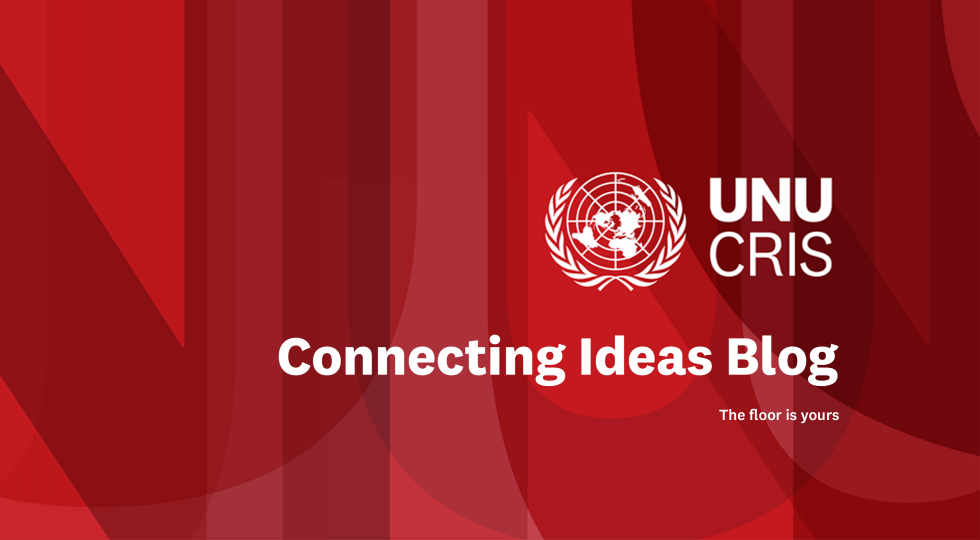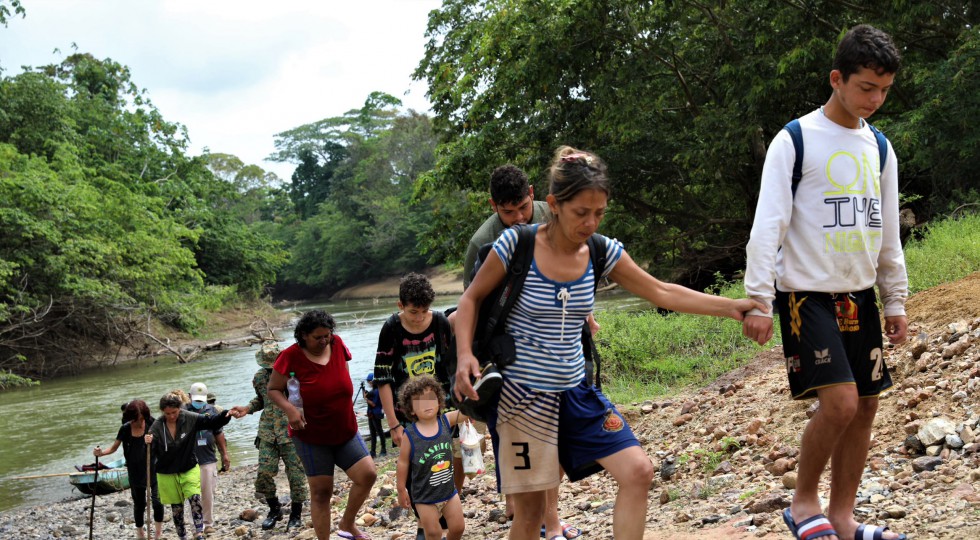Migration Crisis in Darien: The Humanitarian Toll of Failed International Migration Policies

Professor and Head of the Department of Politics and International Relations, University of Southhampton
04 October 2024 | #24.07 | The views expressed in this post are those of the author(s) and may not reflect those of UNU-CRIS.
The escalating migration crisis in Central America, epitomised by the unprecedented flow of migrants through the perilous Darién Gap, has become a stark symbol of regional governance failures and the growing humanitarian challenges in managing displaced populations. Since 2020, the number of migrants crossing the treacherous Darién Gap has skyrocketed from 8,000 to nearly 500,000 by the end of 2023, according to the United Nations Refugee Agency (UNHCR). The UNHCR reports that those crossing the Darien Gap are mainly citizens of Venezuela (almost 60%), as well as from Haiti, Ecuador, and, more recently, from China. Children, people with disabilities, and those suffering from chronic illness or mental health problems make up an important percentage of these groups of migrants. The many hundreds of thousands of irregular migrants from different countries crossing the Darien Gap in Panama from Colombia, most of whom are attempting to reach the United States (USA). The Darien jungle separates South America from Central America, and it is the only break in the Pan-American Highway which joins the Americas.
This surge in irregular migration led to stricter immigration policies in the United States, resulting in many migrants being deported, often to countries in Central America. Recently, a turn to even more restrictive policies has seen a significant policy shift in the Americas. The newly elected president of Panama, José Raúl Mulino, took over in July 2024 with the promise to "close the Darién" as a response to the humanitarian crisis. The decision to close the Darién crossing led to a barbed wire fence with deep implications for regional migration dynamics and the human rights of migrants. This unilateral action, coupled with USA-funded deportations, has several key impacts and raises important questions about state responsibility in providing protection. First, closing the crossing forces migrants to seek alternative routes, which are likely to be longer and more dangerous. This increases the risk of violence, exploitation, and adverse conditions during their journey and could also fuel human trafficking networks as migrants turn to "coyotes" for new routes, exposing them to further exploitation and abuse, as has been reported.
The closure and deportations fundamentally violate the obligations of states under international and human rights law, including the right to seek asylum and protection from deportation to places where migrants face significant risks. Moreover, these actions breach basic principles of dignity and humanitarian protection, exacerbating the suffering of individuals already fleeing extreme conditions of hunger, violence, and poverty. Migrants now blocked by the barbed wire fence are in a position of heightened vulnerability, with inadequate access to basic services such as food, water, medical care, and shelter. Panama's closure of the Darién crossing, combined with the USA pause on asylum under the Biden administration, has created a critical situation for migrants in the region, leaving them stranded and in limbo.
The situation of migrants in Central America, particularly in the Darién region, has exposed a deep governance crisis, not just at the bilateral level, but regionally. The corridor connecting Colombia and Panama has become a microcosm of regional systems that have failed to protect displaced people. Rather than providing solutions, these structures are trapped in a global dynamic that criminalises migrants, limiting their access to protection and basic rights.

Darién in the UN General Assembly
At the 79th Session of the United Nations General Assembly, Panamanian President José Raúl Mulino surprised many by distancing himself from the discourse of his predecessor, Laurentino Cortizo Cohen, who a year earlier at the 78th Session of the United Nations General Assembly, declared, “This is an unsustainable situation…in which we are victims and not responsible.” But Mulino has also opted for a more pragmatic stance, softening the hard rhetoric of closing borders. Recognising the need for a regional and multilateral approach, his speech calls for cooperation beyond national borders, marking a clear break from the tendency to blame other countries.
A key point in Mulino's speech was his departure from the official narrative that for years insisted, "Darién is not a route; it's a jungle." Instead of perpetuating this view, the president acknowledged that the Darién is indeed a migratory passage, and the priority now is to make it a safe and efficient one. What does a "safe and efficient" route mean? That remains to be defined, but it suggests a more collaborative and realistic approach to the problem, moving away from the inaction that characterized previous administrations.
A key element of this strategy has been his rapprochement with Colombian President Gustavo Petro, which has eased bilateral tensions and opened the door for multilateral action. This new approach also presents an opportunity to revitalize regional initiatives like the Cartagena Agreement, which could be crucial in rethinking the migration crisis from a broader perspective. It's not just about human rights but also linking these efforts to the Sustainable Development Goals (SDGs), particularly in critical areas such as health and the environment, which have been severely impacted by the migration crisis in the region.
However, while this is an important step, the region faces the challenge of relying on institutions like the Andean Community (CAN), Mercosur, and the Central American Integration System (SICA), which currently lack both the capacity and a clear agenda to drive shared efforts or mobilize transnational cooperation and resources.
From Rhetoric to Action
However, the challenge now lies in turning this rhetoric into concrete policies. Regional cooperation based on respect for human rights and international commitments will be essential to ensure that the rights of persecuted and displaced individuals are protected at both the national and regional levels. The task is immense, but this shift in discourse represents an opportunity to reevaluate border policies, reshape the regional response and international cooperation, and create more humane and sustainable solutions to the crisis affecting hundreds of thousands of displaced people.
